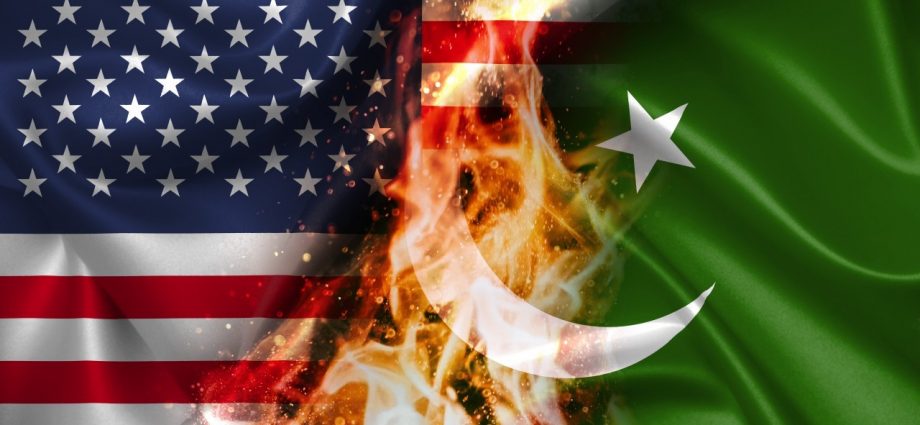-
US lawmakers voted 368-7 on resolution condemning attempts to suppress people’s participation in Pakistan’s contentious national election
-
Pakistan’s foreign office says resolution stems from “incomplete understanding” of country’s political situation, electoral process
ISLAMABAD ( WEB NEWS )
Pakistan’s foreign office on Wednesday criticized a United States House of Representatives resolution that called for an “independent” investigation into claims that country’s election this year was manipulated, saying that such resolutions are neither “constructive nor objective.”
The US house voted 368-7 on the resolution on Wednesday, condemning what it said were attempts to suppress Pakistani people’s participation in democracy. The resolution condemned “harassment, intimidation, violence, arbitrary detention, restrictions on access to the Internet and telecommunications, or any violation of their human, civil, or political rights.”
The House Resolution 901 said the document aimed to express support for democracy and human rights in Pakistan.
“We believe in constructive dialogue and engagement based on mutual respect and understanding,” Pakistan’s Foreign Office Spokesperson Mumtaz Zahra Baloch said in her response to the resolution.
“Such resolutions are therefore neither constructive nor objective.”
Baloch pointed out that Pakistan is the second-largest parliamentary democracy and the fifth-largest democratic country in the world. She said the country is committed to the values of constitutionalism, human rights and rule of law “in pursuance of our own national interest.”
“We believe that the timing and context of this particular resolution does not align well with the positive dynamics of our bilateral ties, and stems from an incomplete understanding of the political situation and electoral process in Pakistan,” she said.
Baloch said Pakistan hoped the USCongress would play a “supportive role” in strengthening bilateral ties between the two countries and focus on avenues of mutual collaboration.
Commenting on the development, Michael Kugelman, Director of South Asia Institute at The Wilson Center in Washington, said the margin of vote for the resolution was significant.
“85 percent of House members voted on it, and 98 percent voted in favor of the resolution,” he noted in a social media post. “This is quite significant.”
Questions regarding the legitimacy of Pakistan’s election were forcefully raised by former prime minister Imran Khan’s Pakistan Tehreek-e-Insaf (PTI) party, whose leaders had to participate in the electoral contest as independent candidates after being deprived of their symbol, the cricket bat, following a legal battle over an intra-party election deemed flawed by the election authority.
Much of the PTI leadership, including Khan, found itself behind bars on a range of legal charges as the country went to the polls, though the candidates supported by it emerged as the single largest bloc in the National Assembly.

